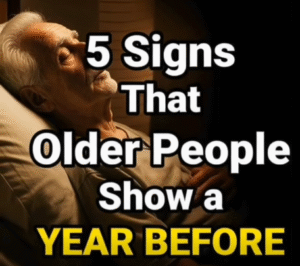1. Visible Changes in Weight and Appetite
Sudden weight loss or a change in eating habits is one of the clearest signs that something is wrong. When the body stops properly digesting food or appetite decreases without explanation, it could be a warning sign of physical weakness, malnutrition, or an developing illness.
It’s not just about eating less: often, a person loses interest in food because they are tired, depressed, or experiencing digestive discomfort. The important thing is not to force them, but to seek medical support, offer bland foods, and maintain hydration. Listening to their preferences is also a form of care.
2. Persistent Fatigue and General Weakness
If your loved one used to walk with ease and now tires easily, don’t dismiss it as normal. Constant fatigue and loss of energy often indicate that the body is conserving resources, whether due to a heart or respiratory problem, or simply advanced aging.
Sleeping more, moving less, or having difficulty performing simple tasks are signs that they need more help and support. At this point, patience and empathy are as important as medication. It’s not about demanding movement, but about offering presence and support.
3. Disorientation, Confusion, or Emotional Withdrawal
When an older person starts forgetting basic things, loses track of a conversation, or seems disconnected, it’s not always dementia. It could be that their brain is receiving less oxygen or stimulation, or that mental fatigue is preventing them from concentrating.
In addition, social isolation often leads to deep sadness or apathy.
If you notice them withdrawing, don’t leave them alone. Listen without correcting, be there for them without judging, and remain calm. At this stage, calm companionship is worth more than any words.
4. Recurring Illnesses or Wounds That Don’t Heal
The immune system also ages. When defenses weaken, infections become more frequent, and wounds take longer to heal. A persistent cough, a wound that takes weeks to close, or repeated urinary tract infections are warning signs that should be taken seriously.
Rather than seeking aggressive treatments, it’s time to strengthen medical care, focus on skin health, hydration, and overall comfort. Sometimes, small changes—like maintaining good hygiene or adjusting diet—can make a big difference.
5. Changes in breathing, circulation, or skin color
The body speaks even without words. If you notice that their breathing is slower, shallow, or irregular, or that their hands and feet frequently get cold, their heart may be working less hard. Bluish or pale tones may also appear on the skin, especially on the lips or extremities.
These signs indicate that blood is no longer flowing as efficiently and that the body needs more rest and care. At this point, the priority is not to prolong suffering, but to ensure comfort, serenity, and loving support.
Tips for providing better care
Observe without judgment. Small daily changes speak louder than major events.
Listen to their silences. Sometimes they don’t ask for help with words, but with gestures or glances.
Seek professional support. A geriatrician or specialized nurse can detect what the family is overlooking.
Prioritize emotional well-being. Companionship, affection, and respect are medicines that can’t be prescribed, but they heal.
Accompany them with love, not pity. What an older person needs most is to feel valued, not “cared for like a child.”
Final Reflection
Watching someone we love grow old is never easy. But recognizing the signs that they need more attention is not an act of sadness, but of love.
When we understand what the body and soul are telling us, we can offer care with tenderness, calm, and dignity.
Old age should not be experienced in solitude or fear, but with companionship and respect.
Because in the end, taking good care of those who once cared for us is one of the purest forms of gratitude and humanity.






